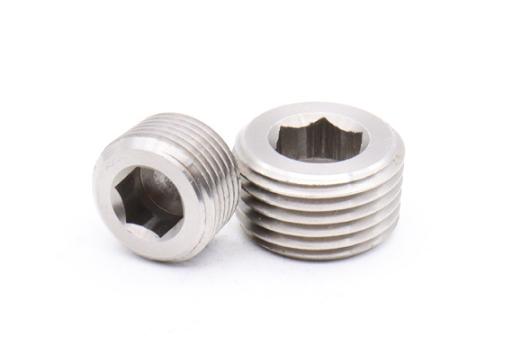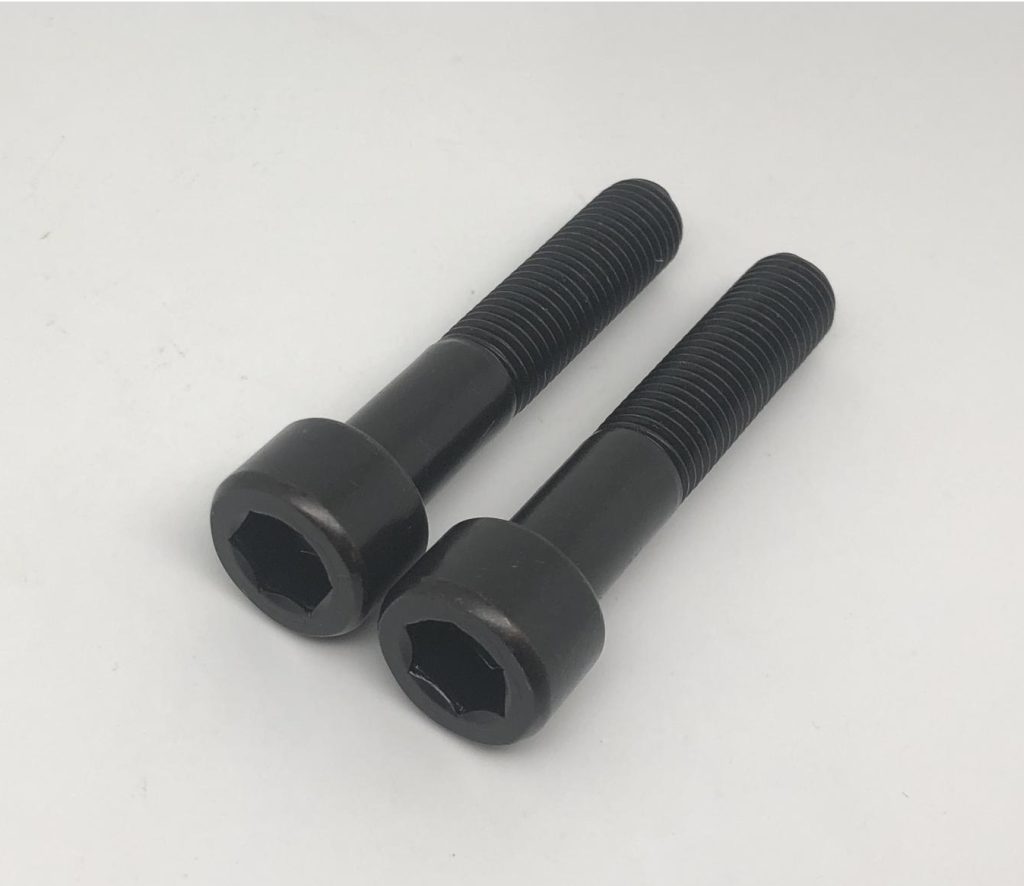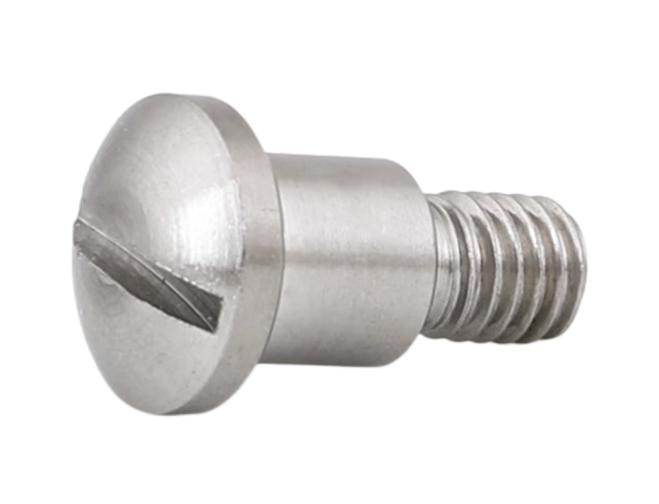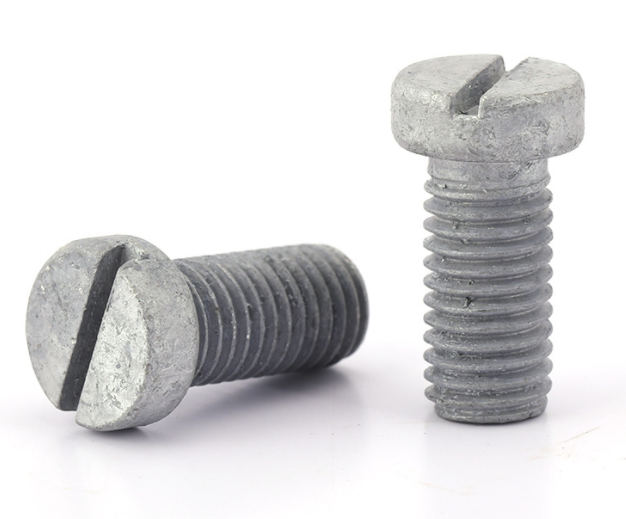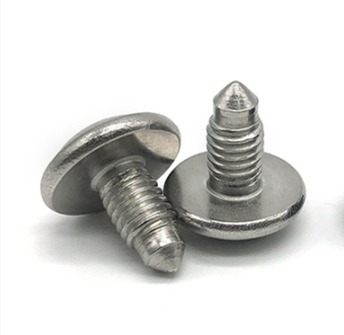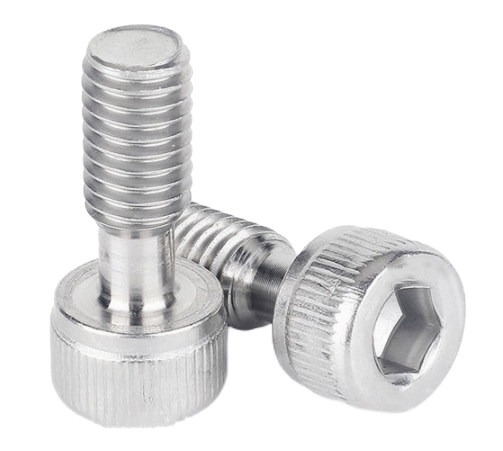What are Bolts Made of: Commonly Used Materials and How to Choose Materials
Bolts are critical components that hold structures, machinery, and diverse things together, ensuring stability and dependability. They are made up of a threaded shaft, a head, and, in some cases, a nut. The threaded section of the bolt enables a firm hold within the receiving material, while the bolt head provides a surface for delivering torque during installation. Have you ever wondered what bolts are made of? In this post, we’ll look at the materials for manufacturing that give bolts their strength and durability, as well as how to choose the best bolt materials.

What are Commonly Used Bolt Materials?
The materials used in bolt manufacturing are critical since they determine the bolt’s strength, longevity, and suitability for various applications.
Carbon Steel
- Because of their low cost and general-purpose strength, carbon steel bolts are one of the most commonly utilized types of bolts.
- Grades such as Grade 2, Grade 5, and Grade 8 are available, each offering different levels of strength and durability.
- Carbon steel bolts are used in a variety of industries, including construction and automobile.

Alloy Steel
- Alloy steel bolts are created by combining particular alloying components with carbon steel to improve mechanical qualities.
- Chromium, molybdenum, nickel, and vanadium are common alloying elements used to improve strength, hardness, and corrosion resistance.
- Alloy steel bolts are suited for high-stress applications and corrosion-resistant conditions.

Stainless Steel
- Chromium is present in stainless steel bolts, which produces a protective oxide coating on the surface, offering good corrosion resistance.
- Stainless steel grades (e.g., 304, 316) have varied levels of corrosion resistance and strength.
- Stainless steel bolts are frequently employed in applications where moisture or corrosive conditions are present.

Titanium
- Titanium bolts are well-known for their high strength-to-weight ratio, resistance to corrosion, and biocompatibility.
- They are widely employed in aeronautical, medical, and marine applications where weight savings and resilience to severe environments are critical.
- Titanium bolts are more expensive than steel bolts, but they have distinct advantages in some applications.

Brass
- Brass bolts are formed of a copper-zinc alloy.
- They have good corrosion resistance, electrical conductivity, and an attractive look.
- Decorative and non-magnetic applications are common uses for brass bolts.
Aluminum
- Aluminum alloy bolts are lightweight and resistant to corrosion.
- They are employed in applications that require weight reduction, such as the automobile and aerospace sectors.

Bronze
- Bronze bolts are made of a copper-tin alloy that has good corrosion resistance and high strength.
- They are frequently employed in marine and architectural applications.
Nickel Alloys
- Nickel alloys, such as Inconel and Monel, have strong temperature, corrosion, and stress resistance.
- They’re used in harsh environments like aerospace, chemical processing, and marine applications.
What are the Factors that should be considered for Choosing the Right Bolt Materials?
Selecting the right bolt material has an immediate impact on the bolt’s performance, durability, and overall safety of the building or application.
Mechanical Requirements
Based on the application, determine the load-bearing capability and strength requirements of the bolts. High-stress applications may necessitate stronger materials such as alloy steel or titanium, whilst general-purpose applications may benefit from carbon steel.
Corrosion Resistance
Take into account the environment in which the bolts will be used. To ensure long-term durability in corrosive settings, such as near salt water or chemical exposure, stainless steel, titanium, or corrosion-resistant alloys are ideal.
Temperature Extremes
Select materials with good thermal stability, such as nickel alloys or heat-treated steels, for applications involving high temperatures, such as engines or industrial machinery.
Weight Constraints
Materials such as titanium or aluminum can provide essential strength while lowering total weight in areas like as aircraft, where weight reduction is critical.
Electrical Conductivity
Non-conductive materials such as plastics or non-ferrous metals (e.g., brass) may be useful in applications where electrical conductivity must be avoided.
Magnetic Properties
Nonmagnetic materials such as stainless steel or certain nickel alloys can be utilized in applications where magnetism must be minimized.
Budget Constraints
Consider material costs, as some materials, such as titanium, can be more expensive than carbon steel or alloy steel. Balance performance expectations with budget constraints.
Compatibility with Other Materials
Check that the bolt material is suitable for the materials with which it will come into contact. When dissimilar metals come into contact, galvanic corrosion can occur, thus using materials with equivalent galvanic potentials.
Industry Standards and Regulations
Check that the bolt material is suitable for the materials with which it will come into contact. When dissimilar metals come into contact, galvanic corrosion can occur, thus using materials with equivalent galvanic potentials.
Expected Lifespan and Maintenance
Determine the structure’s or application’s desired lifespan. Because of their corrosion resistance and durability, some materials require less maintenance and have a longer service life.
Availability and Sourcing
Make certain that the material of choice is easily available and can be sourced dependably. The availability of resources can have an impact on project deadlines and costs.
Summary
Bolts are critical components that keep the world together by ensuring the structural integrity of buildings, vehicles, machines, and a wide range of other objects. The materials employed in its construction contribute to their strength and dependability. Steel, stainless steel, alloy steel, titanium, brass, and aluminum are common materials used to manufacture bolts with various qualities to meet a variety of engineering requirements.

